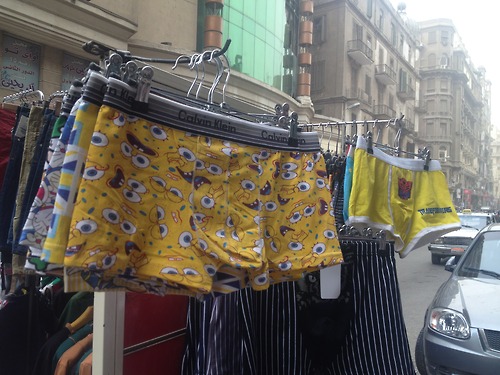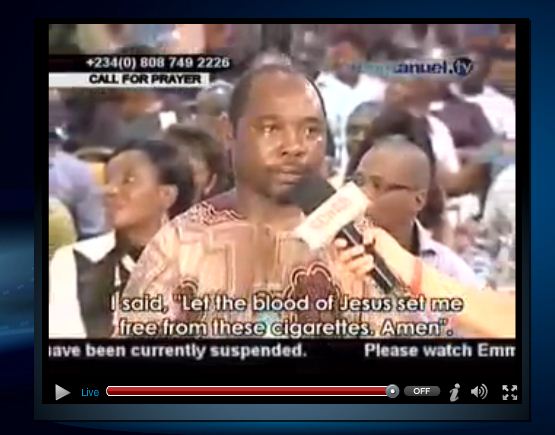Taking a domestic flight in Somalia is an experience that can best be described as travelling to the brink of death and coming back. The airplanes on the domestic routes are commonly called express flying coffins and those who survive a flight on them are fittingly referred to as coffin dodgers.
Due to the appalling state of the country’s roads and poor road safety more and more Somalis are choosing to fly instead of drive.
On a recent hot humid Thursday afternoon more than 150 of us gathered in the lounge of Mogadishu International Airport to take a flight to Kismayu, Somalia’s third biggest city.
The passengers crowded around the few windows in the lounge, their eyes locked onto a sky-blue plane at the far end of the runway. Dark smoke, the kind that billows from burning tyres at protests, was coming out of the plane’s exhaust. We just knew that plane was going to be our ride for the 45-minute flight.

When the gates at the departure lounge opened, everyone rushed towards the plane. I, along with some other quick-footed passengers, chose to run.
As with many domestic flights in Somalia, there are more passengers than available seats. If you don’t literally grab a seat on the plane, you’ll stand for the whole journey despite having paid for a seat.
I was lucky to be one of the first to get on the plane. Seats filled up fast and 25 unlucky passengers were left standing in the aisle.
Competition for seats on a flight can be humbly described as fierce. If you leave yours to go the bathroom, another passenger will grab it before you’ve even negotiated your way through the packed aisle, and you’ll find yourself among those standing when you get back. On a Somali flight, when nature calls you don’t answer!
Most of the seats on this plane were faulty. They had no seat belts and reclined 180 degrees if you touched them. Each passenger had to hold the seat in front of them with both hands. If we didn’t, the seat and the passenger in it would be in our laps during take-off.
Once everyone was on board, a loud male voice pierced through the cacophony of noise. The voice asked all the passengers to be quiet for prayers before take-off.
Then, in an impeccable Somali voice, the teenage-looking steward in a half-buttoned baggy pink shirt said “welcome on board” and proceeded to recite a prayer at the top of his voice (the plane had no PA system and the steward had no megaphone). It was the kind of prayer Somalis normally recite at the graves of their long-gone great grandparents.
For a few seconds everyone was totally silent. Even the crying babies were quiet. I guess reality hit: we were on a plane not fit to fly.
But instead of comforting and reassuring us, the prayer caused silent panic. A lady sitting a few rows in front of me was overcome by fear and the thick smell of sweat in the air. She threw up on the feet of a standing passenger.
A few minutes later, two old, pot-bellied, sun-burnt, sweat-covered, cigarette-smoking, booze-smelling, Eastern European male pilots wearing only shorts climbed up the creaky metal ladder attached to the emergency exit. It had been left open to let air into the plane since the air conditioning had long since seized to function.
Passengers who’ve been on this plane before – and survived – had come prepared with prayer beads and cardboard pieces to use as makeshift fans.
Because of the intense heat and lack of air, babies started crying and parents shouted at the young steward to do something. Since the standing passengers were blocking the main exit, he rushed out of the plane through the emergency exit and returned with empty boxes. He ripped them into small pieces and started distributing them to passengers who did not bring their own cardboard. The situation calmed down a bit then and soon we were in the air.
I was travelling with my colleague Awil and his three-year-old son Lil Abdi. Despite paying for three seats we had two. Children under the age of 14 aren’t allowed to have their own seats even though they are charged for one. They have to sit on one of their parents’ laps. If they’re travelling alone, they have to ride on the laps of strangers.
Lil Abdi was spoilt for choice compared to the other kids on the flight. He had the pick of two laps to sit on for the journey. But he preferred to sit on mine because I was seated next to a window, which had a small crack that let in cold air. The little things like a window crack are attractive bonuses when you’re on a Somali flight.
I should mention that there were no cabins to store our possessions in. Everyone held their bags on their laps. If there’s a child on your lap – which will most likely be the case if you’re flying during the high season – then you leave your bag in the aisle. If there are passengers standing in the aisle, you have no other option but to hold your luggage over your head until you land.
Somalis are usually not scared of death. In fact, death is treated like an intimate neighbour. Sitting on the seat in front of me was an old man who had returned from Milan. He had his grandchild on his lap. He wasn’t worried about dying, just about where his bones would end up if something fatal happened mid-air.
“Do you think our bones will land on the ground or disappear in the air?” he asked the passengers around him. No one responded.
A few minutes later he looked out the window, pointed to the green vegetation on the ground, and said: “Even if my whole clan went out there looking to collect our bones they will not find them.”
By this time, forty-five minutes had already passed so I asked the steward if we should prepare for landing. Looking visibly irritated he said: “It will take us a further twenty minutes because the plane is overloaded and has to fly at slower than normal speed.”
On hearing this, some passengers voiced their displeasure and asked that the plane fly faster. Frustrated with our constant complaints, the steward reminded us all that a few weeks ago another plane that was flying at high speed was targeted by the Islamist rebel group al-Shabaab as it prepared to land because they suspected the flight to be carrying government officials. Our hearts sunk and fresh panic set in again.
Suddenly passengers were scanning the skies for incoming rockets. It was bad enough being on this plane without the fear of being struck down by al-Shabaab.
Fahad, a passenger standing next to our row of seats, tapped me on the shoulder and asked if I was married. “No,” I said. He wasn’t married either, he told me. “I’m not scared of death but I want to marry and have at least one son before I die. I want to leave something behind on this world.”
I told Fahad the plane could have other plans for us and that al-Shabaab sheikhs may not want to wait for him to marry and have a son.
Perhaps he was looking for reassurance but I just wanted to finish listening to the Dhaanto track on my iPod and then pray for a few minutes in case things went pear-shaped.
With every word I uttered Fahad got more tense. Sensing this, Awil jumped in to comfort him: “If the sheikhs kill us up here we’ll be closer to heaven than if they killed us on the ground.”
I guess the sheikhs were busy with other business that day because we landed all right.
As soon as the plane touched down in Kismayu every passenger was on their feet, rushing for the exit. Some prayed enthusiastically on the dusty airport tarmac, thanking God for allowing them to survive the flight.
As we exited, I told Awil I’d be writing about this experience.
“If you do, we could get banned from future flights,” he said.
“That might just extend our life expectancy,” I replied.
Hamza Mohamed is an independent British-Somali journalist. Connect with him on Twitter.





